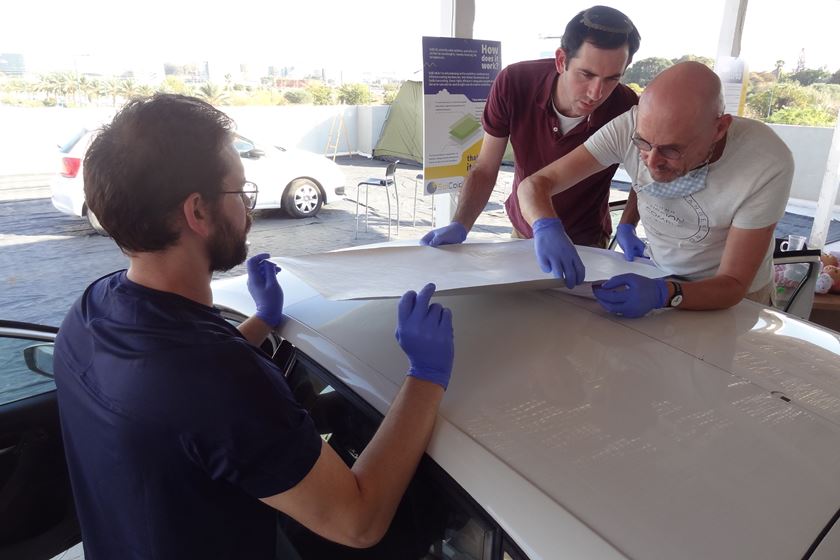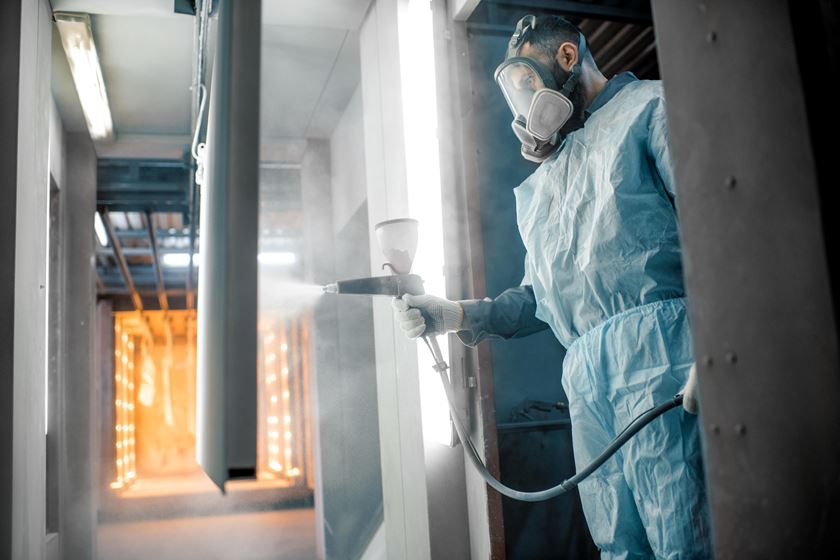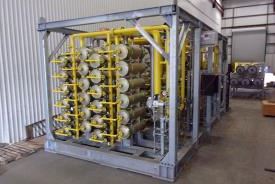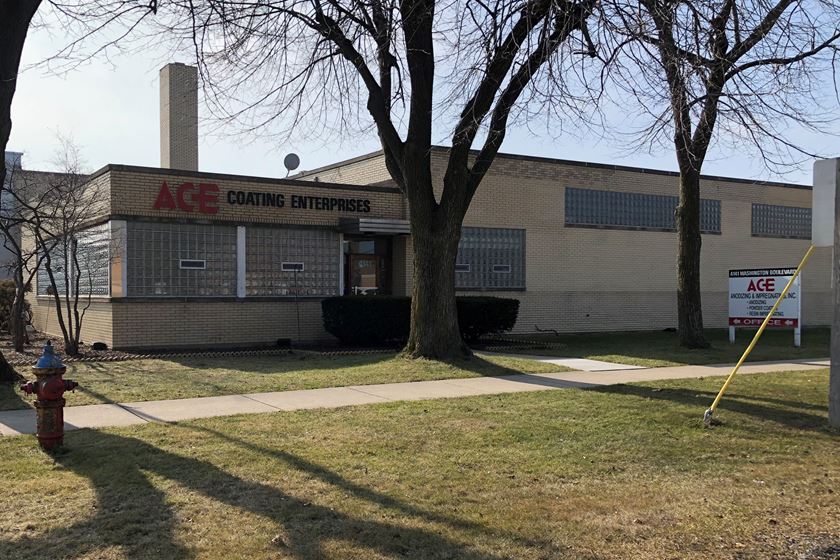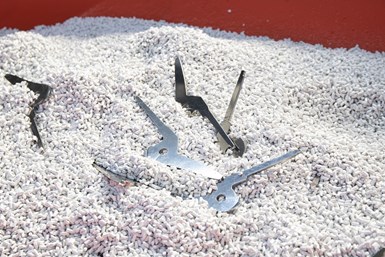 The stamped and laser-cut knives are deburred and polished in a two-stage process in order to create optimal conditions for the next manufacturing step and to guarantee a long service life.
The stamped and laser-cut knives are deburred and polished in a two-stage process in order to create optimal conditions for the next manufacturing step and to guarantee a long service life.Improved productivity, increased production capacity, better quality and lower costs. These were the demands of a garden tool manufacturer when the company invested in a new mass finishing system for deburring and polishing garden shear knives. Rösler (Untermerzbach, Germany) met this challenge with a tailor-made Keramo-Finish process that is run in a double-batch centrifugal disk finishing machine FKS 35.1 A2-So with fully automatic workpiece handling. In a two-stage process, the stamped and laser-cut knives are deburred and polished in the FKS finishing machine. Subsequently, they are dried in an energy-efficient rotary dryer and prepared for the next manufacturing step.
Gardena, a brand of the Husqvarna Group, has been offering everything ardent gardeners need. The broad product range includes innovative systems for irrigation, lawn, tree and shrub care, as well as soil cultivation. Gardena products are used in more than 80 countries all around the world.
Featured Content
Modern equipment and process technologies
To ensure easy and simple handling, produce excellent cutting performance and guarantee a long service life, the shear components are produced with new manufacturing technologies such as stamping or laser cutting the upper and lower knives, followed by deburring and polishing in mass finishing equipment. Previously the lower knifes required two separate finishing operations, one in a rotary vibrator and one in a centrifugal disk finishing machine.
To combine these two operations into one and adapt them to the latest manufacturing requirements, the existing mass finishing equipment was replaced. Gardena chose a finishing solution from the Rösler Oberflächentechnik GmbH, who had already supplied the machinery used to date. By investing in new equipment the customer was looking for, comprehensive optimization of the finishing process improved not only the productivity and offered a higher capacity, but also resulted in lower costs.
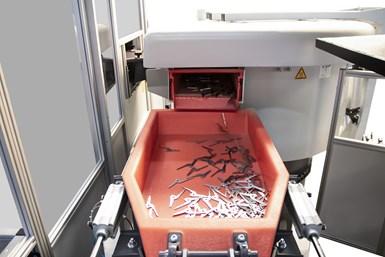 The finished knife blanks are transferred to the drying station filled with a maize-cellulose product.
The finished knife blanks are transferred to the drying station filled with a maize-cellulose product.Shorter cycle times
Based on the surface finishes of the steel knives that are required for the next manufacturing steps, the Rösler process engineers ran a series of processing trials in their test lab with various processing media and different process parameters. The best results were achieved with a Keramo-Finish process in a centrifugal disk finishing machine. This includes the use of ceramic media with minimal abrasive characteristics in combination with a grinding and polishing paste and a cleaning compound with a distinct brightening effect.
The new process allows the deburring and polishing of all knives in one single machine. The rotary vibrator was no longer required and the workpiece handling was simplified. Moreover, depending on the workpiece type, the new Keramo-Finish process reduces the processing times by 25 percent to over 100 percent and allows bigger workpiece batches. This helped to reduce the operational costs by around 10 percent with, at the same time, greatly improved finishing results.
Double batch system
The new double batch centrifugal disk finishing machine was perfectly integrated into the manufacturing flow at Gardena. Workpiece-specific processing programs stored in the PLC controller allow the targeted finishing of the various knife types.
After stamping, laser-cut workpieces are collected in perforated metal bins. The operator utilizes a swing crane to dump the raw knife components into a loading device that transfers them into a vibratory feed hopper. After the respective finishing program has been manually selected, the hopper automatically feeds a workpiece batch into the work bowl for processing. After a preset finishing time, the work bowl gently dumps the mix of finished workpieces and media onto a vibratory hopper from where the mix is transferred to a vibratory separation unit. There, with a precisely sized hole screen, the media and finished workpieces are separated from each other. At the same time, a special undersize media screen is discharging media that is no longer suitable for the finishing process. This guarantees continuous high process stability. While the media is returned into the work bowl, the finished knife blanks are transferred to the drying station filled with a maize-cellulose product. The rotary dryer RT 550 Euro-DH is equipped with an innovative new heating system that guarantees not only fast, reliable and spot-free drying of the workpieces but also produces energy savings of up to 40 percent compared to conventional rotary dryers. After completion of the drying cycle, the knives are transferred to another vibratory hopper that loads them into small transport carriers made from plastic.
A fully automatic Z 1000 centrifuge is cleaning the process water and recycling it back to the mass finishing system for re-use in the finishing process. The drastically reduced water consumption, along with the innovative finishing solution and well-planned process controls ensure a sustainable and efficient operation of the new mass finishing system.
RELATED CONTENT
-
High Fives for the Surface Finishing Industry
National Surface Finishing Day offered what seems to have been a missing component in our makeshift gatherings over the past year, which is a chance to celebrate together.
-
How to Select the Right Flap Disc
Consider these five variables to determine what fits your application.
-
Drivers of Change
Is your metal finishing software ready for an upgrade?
















